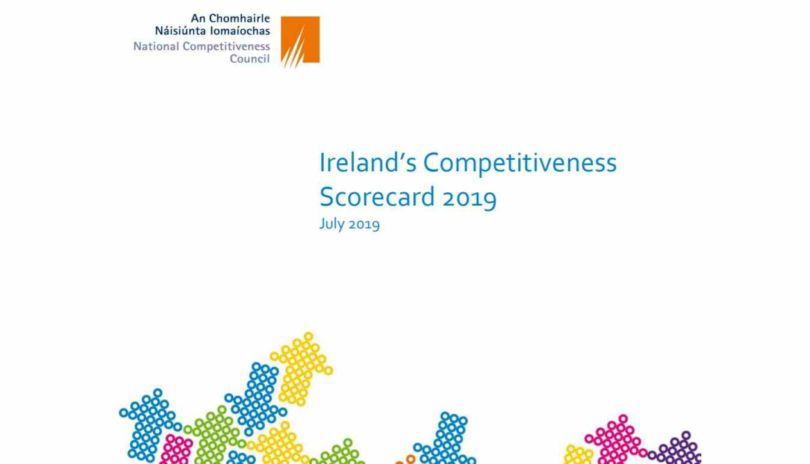The National Competitiveness Council today published its Ireland’s Competitiveness Scorecard 2019 report. The report maintains that Ireland remains competitive but threats to economic sustainability are growing.
The NCC report builds on findings presented in the Cost of Doing Business in Ireland 2019 report and the Productivity Statement 2018.
The scorecard adds a number of non-cost competitiveness indicators that are assessed by the NCC in the context of the overall competitiveness of the Irish economy.
The scorecard’s headline findings indicate that Ireland continues to perform well in the three most influential competitiveness indicators. Ireland is ranked 7th in the IMD rankings and ranked 23rd in both the WEF and World Bank rankings.
The country’s Harmonised Competitiveness Indicator (HCI) also suggests that the economy made large competitiveness gains from 2010 onwards.
However, the NCC scorecard points out that there are substantial international risks to Ireland’s competitiveness, including Brexit and potential changes in US international trade policy. These are compounded by domestic issues, including the concentration of the Irish economy and the risk of the economy overheating.
The NCC scorecard also warns that Ireland remains a high-cost economy. It adds that higher costs in general are less of a concern, should productivity levels grow at a faster pace. However, the majority of firms in Ireland demonstrate stagnant or declining growth in productivity.
Elsewhere, the NCC publication notes that high and rising business costs (in credit, business services, commercial rents and insurance), environmental sustainability, and increasing skills mismatches will impact on Ireland’s future competitiveness.
In what is his last report as NCC chairman, Professor Peter Clinch said that in recent years, Ireland’s cost base has risen. “The economy has become more concentrated in certain areas, leaving Ireland exposed to the performance of a small number of firms, trading in a relatively narrow range of products and services, and operating in a small number of sectors.
“Moreover, with public debt levels that are the highest in the EU, Ireland is vulnerable in the face of any future crisis,” Prof. Clinch added.








